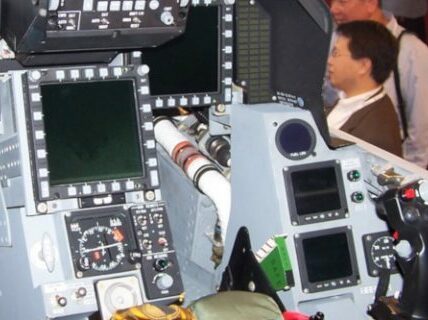Case File
Litton Industries’ Contracts with Greece and Taiwan

Contents
Introduction
Introduction
contentsU.S. companies are often perceived to operate in a regulatory atmosphere less tolerant of foreign bribery than their European counterparts. Foreign bribery was criminalized far earlier than in other arms exporting countries, and commission payments must also be disclosed under export regulations. Nonetheless, U.S. firms have used agents in the past to secure business as well, and in the 1990s Litton Industries, a shipbuilding and defense electronics conglomerate, was prosecuted for failing to disclose fees to agents in both Greece and Taiwan. Paying out over USD 16 million, it won contracts to provide aircraft upgrades in both countries.
Case Details
Case details
contentsActors
Actors
contentsYu-ming (Richard) Hei – major (retd.) of the Taiwan ROC Air Force and the head of T&P Company, agent on Litton’s Taiwan arms deals; pled guilty to one count of tax evasion and received a sentence of three-years’ probation in exchange for cooperation with prosecutors.
Allegations
Summary of Corruption Allegations
contentsThe Taiwanese agent Richard Hei and his company T&P Co. were on the radar of U.S. investigators as early as 1993. Hei had previously worked as an agent for Teledyne Inc. in the 1980s, which netted Teledyne a USD 1.5 million fine in August 1993, and was suspected by the SEC of having worked for Lockheed Martin’s radar division in New Hampshire, known as Lockheed Martin Sanders (now a part of BAE Systems).
Litton’s full involvement in commission payments to Greek and Taiwanese agents was exposed during a 1997 audit of the company by the U.S. Department of Defense, which found that the commission payments to Hei and the Greek agents had been falsely labeled as “other direct costs,” and then re-labeled during the audit as “other computer services.”
According to Litton’s 1999 guilty plea, it also earned USD 47 million in aircraft upgrade contracts in Taiwan, the details of which have largely remained secret. Its Litton Systems Canada subsidiary earned two contracts worth USD 40 million in total, while Litton Applied Technologies brought in USD 7 million.
Timeline
Timeline
contents- FebThe Greek government elected a U.S. alliance of three defense electronics firms to provide a suite of defensive electronic warfare systems for a fleet of 80 F-16C/D fighter aircraft purchased from the United States in the 1980s. The package, provided by Litton Industries, Raytheon, and Tracor, integrated a threat warning radar, jammer, and countermeasures dispenser. The winning offer defeated a rival bid from British firm GEC.
- AugThe contract was awarded. It was initially worth USD 121.1 million, with an option to add on USD 34.6 million in test equipment and other systems. The winning offer defeated a rival bid from British firm GEC.
Outcomes
Investigation Outcomes
contents- JunTwo Litton Industries subsidiaries, Litton Applied Technologies (LAT) and Litton Systems Canada (LSC), pleaded guilty to conspiracy to defraud the U.S. Government, in relation to undeclared commission payments made to secure the above deals in Greece and Taiwan. Litton Systems Canada also pleaded guilty to providing false statements and to mail fraud. Under U.S. International Traffic in Arms Regulations (ITAR), companies exporting defense equipment are required to declare any fees, commission payments, and political contributions made in relation to an export. Thus, as in this case, it is not necessary to demonstrate that the payments served a corrupt purpose, merely that the company failed to declare them. By pleading guilty, the companies avoided more serious charges of bribery under the Foreign Corrupt Practices Act (FCPA). In Greece, LAT admitted to paying USD 12 million to 4 agents in 1993 to help win a contract to supply radars for Greek F-16 aircraft, beating off competition from UK company GEC. The payments were channeled through another subsidiary, Litton Applied Technologies International, disguised as “other direct costs”.
- OctRetired Taiwanese Air Force Major Richard Hei admitted in a U.S. court to taking as much as USD 12 million in illicit payments from Litton and other contractors, between 1988 and 1993, but the precise years in which the Litton transactions took place is not clear. These payments were disguised as fake consultancy contracts and retainers. LAT and LSC agreed to pay a total of USD 18.5 million, including USD 16.5 million in fines, USD 1,263,000 for the costs of the investigation, and USD 737,000 in compensation to Taiwan. Hei was sentenced to 3 years probation.
References
References
contentsWorld Peace Foundation - Compendium of Arms Trade Corruption
https://sites.tufts.edu/corruptarmsdeals/litton-industries-contracts-with-greece-and-taiwan/
“Greek Government Selects Litton Team for F-16 Electronic Warfare Systems,” Litton Industries Press Release, Business Wire, Feb. 25, 1993, available from LexisNexis.
“Raytheon Signs with Litton to Produce Jammer for Greek AF,” Raytheon Press Release, PR Newswire, July 28, 1993, available from LexisNexis.
“Litton Leads Industry Team to Win USD 122.1 Million Contract from Greek Government,” Litton Industries Press Release, Business Wire, Aug. 18, 1993, available from LexisNexis.
Niko Price, “Teledyne Agrees To Pay Fine, Plead Guilty To Lying About Consultant,” The Associated Press, Aug. 24, 1993, available from LexisNexis.